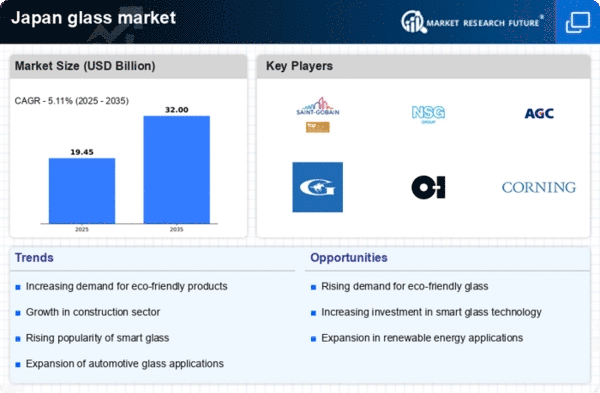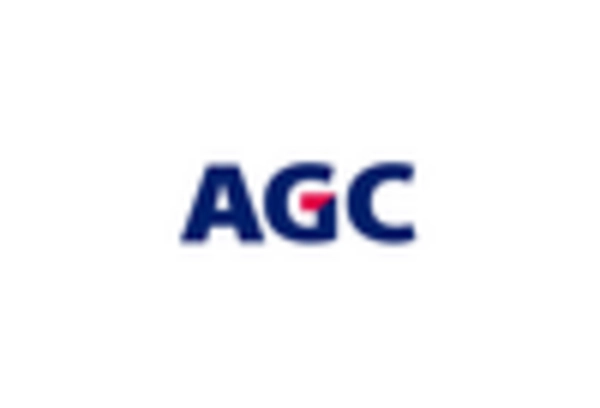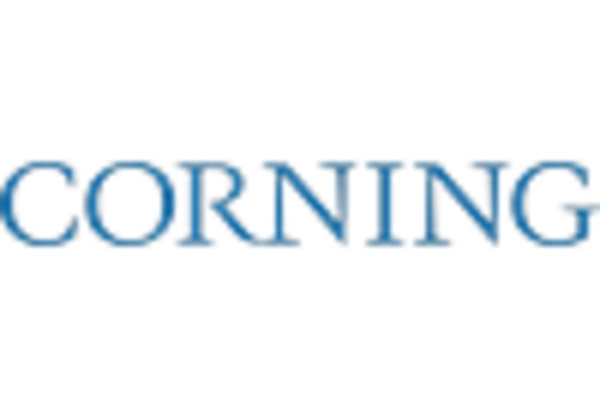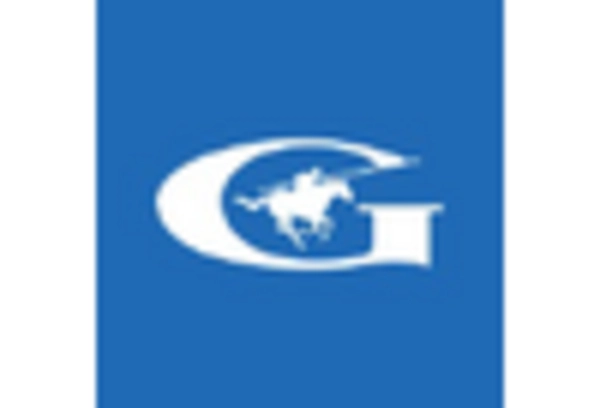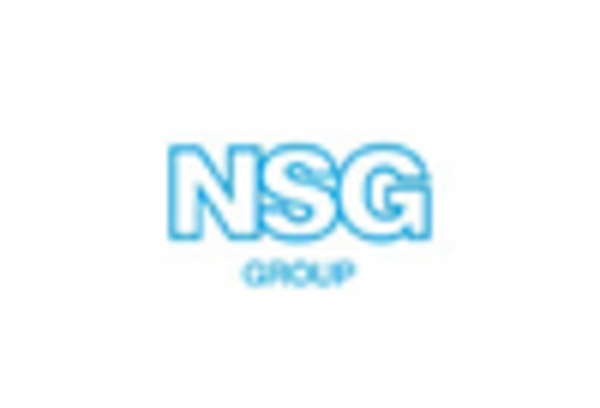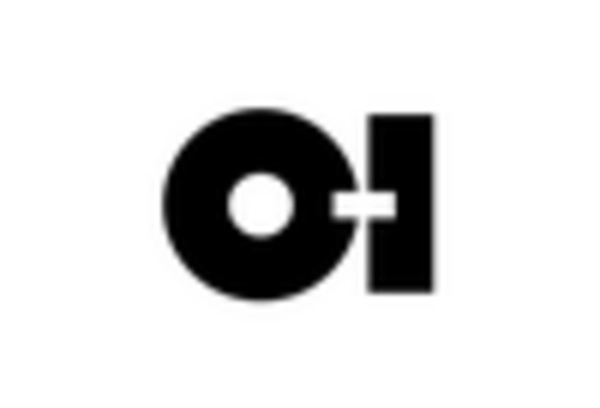The glass market in Japan is characterized by a competitive landscape that is increasingly shaped by innovation, sustainability, and strategic partnerships. Key players such as Nippon Sheet Glass (Japan), AGC Inc. (Japan), and Saint-Gobain (France) are at the forefront of this dynamic environment. Nippon Sheet Glass (Japan) focuses on enhancing its product offerings through advanced manufacturing techniques and sustainable practices, while AGC Inc. (Japan) emphasizes digital transformation and the integration of smart technologies into its glass products. Saint-Gobain (France) is actively pursuing regional expansion and strategic acquisitions to bolster its market presence, indicating a trend towards consolidation in the industry. Collectively, these strategies not only enhance their competitive positioning but also drive innovation across the sector.In terms of business tactics, companies are increasingly localizing manufacturing to reduce lead times and optimize supply chains. The market structure appears moderately fragmented, with several key players exerting considerable influence. This fragmentation allows for niche players to thrive, yet the collective strength of major companies like AGC Inc. (Japan) and Nippon Sheet Glass (Japan) shapes pricing strategies and product availability, creating a competitive yet collaborative environment.
In October AGC Inc. (Japan) announced the launch of a new line of eco-friendly glass products designed to reduce carbon emissions during production. This strategic move not only aligns with global sustainability trends but also positions AGC as a leader in environmentally conscious manufacturing. The introduction of these products is likely to attract environmentally aware consumers and businesses, enhancing AGC's market share.
In September Nippon Sheet Glass (Japan) entered into a partnership with a leading technology firm to develop smart glass solutions that integrate IoT capabilities. This collaboration signifies a shift towards high-tech applications in the glass market, potentially revolutionizing how glass products are utilized in smart buildings and automotive industries. The strategic importance of this partnership lies in its potential to create new revenue streams and enhance product differentiation.
In August Saint-Gobain (France) completed the acquisition of a regional glass manufacturer, which is expected to strengthen its distribution network in Japan. This acquisition not only expands Saint-Gobain's operational footprint but also enhances its ability to respond to local market demands more effectively. The strategic importance of this move is underscored by the need for agility in supply chain management and customer responsiveness in a competitive market.
As of November current trends in the glass market are heavily influenced by digitalization, sustainability, and the integration of AI technologies. Strategic alliances are becoming increasingly vital, as companies seek to leverage complementary strengths to enhance their competitive edge. The shift from price-based competition to a focus on innovation, technology, and supply chain reliability is evident. Moving forward, differentiation will likely hinge on the ability to innovate and adapt to changing consumer preferences, with sustainability at the core of future strategies.


